May 19, 2025 | 01:06 GMT +7
May 19, 2025 | 01:06 GMT +7
Hotline: 0913.378.918
May 19, 2025 | 01:06 GMT +7
Hotline: 0913.378.918
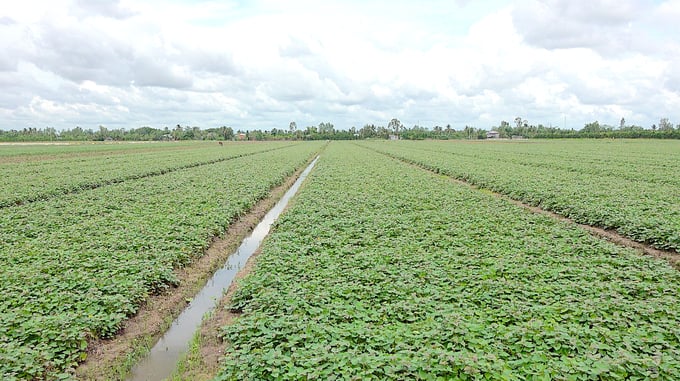
Vinh Long province has 27 growing area codes for sweet potato growing areas eligible for export to China. Photo: Minh Dam.
Binh Tan district, Vinh Long province is the “sweet potato capital” with an average annual production area of over 13,000 ha and an output of over 380,000 tons. This crop used to help local farmers earn a stable source of income, but Covid-19 forced local farmers to fall into debt because the output came to a standstill.
After the global pandemic, Vinh Long implemented many solutions to restore the sweet potato production chain which was once broken. In particular, Vinh Long Department of Agriculture and Rural Development focused on guiding people to develop the growing area codes to link output with export enterprises.
The province now has 27 growing area codes with a sweet potato area of over 565 ha licensed to export to the Chinese market. Many businesses have also come to invest in building standard packaging facilities and link with local farmers for consumption.
But a problem arises in the sweet potato production - consumption link chain. In some cases, farmers complain that they face certain difficulties in the link chain such as criteria for selecting potatoes, prices, trading methods, and particularly the management of growing area codes by local authorities at the grassroots level. So the consumption linkage with business has not been carried out as intended.
In a potato growing area (12.7 ha) in Thanh Hieu hamlet, Thanh Trung commune, Binh Tan district, Viet Phuc Production and Import-Export JSC (headquartered in Hanoi) previously supported local people in terms of growing area codes.
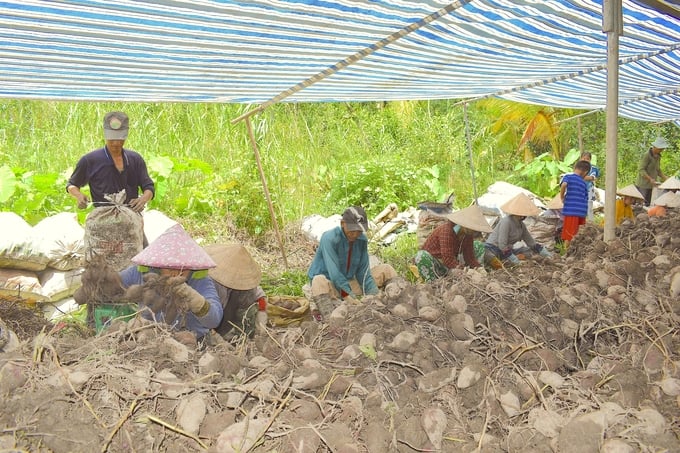
Harvesting sweet potatoes in Vinh Long. Photo: Minh Dam.
About 20 days ago, some farmers had potatoes ready to be harvested. When they contacted Viet Phuc to sell potatoes, the company offered a price lower than the market (VND 80,000/100 kg) and asked to purchase potatoes weighing 50 g or more. Compared to the conditions offered by outside traders (buy in bulk, only remove rotten and pest-infected potatoes) at a price of 800,000 VND, farmers are not willing to sell to Viet Phuc.
Farmers also said that they had negotiated with businesses and they could not come to a deal, so they just sold to other traders. Outside traders also required farmers to provide confirmation of the growing area for export. When going to the commune government to ask for confirmation, the implementation was slow, making farmers frustrated.
Regarding this matter, Ms. Nguyen Thi Lan Huong, Chairman of the Board of Directors of Viet Phuc Production and Import-Export JSC, affirmed that if the enterprise cannot buy for farmers, it would have no objection when farmers choose to sell potatoes to other traders. As for the end of the story, the commune People's Committee finally confirmed the growing area for farmers to sell potatoes to outside traders. From the perspective of potato growers, the current form of linkage contract is not stringent. Signing a fixed price contract with a stable profit for a long time would make growers feel more secure.
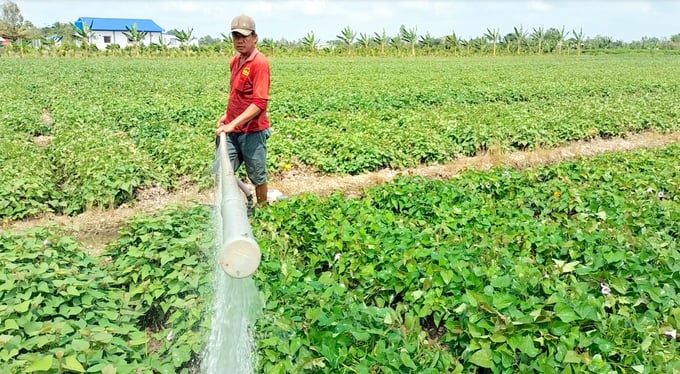
Vinh Long prioritizes building an effective sweet potato production link chain. Photo: Minh Dam.
The business side also complains about difficulties when implementing this type of link chain. According to Ms. Huong, farmers are misunderstanding growing area codes and misinformed about prices by some traders. Besides, people also have the habit of selling potatoes in bulk while businesses cannot do so to customers in China.
“In China, the price of potatoes is 7-8 yuan/kg (VND 22,000 - 26,000/kg). Buying at a price of VND 800,000 - 850,000 for 100 kg of potatoes would definitely put the business at a loss because the rate of qualified potatoes when buying in bulk is only 65 - 70%, not to mention other costs, especially logistics. In the near future, we will come to an agreement with the barns to no longer buy in bulk, but instead follow the purchase classification of A, B, C. We have to serve the market, not impose it. If you follow the old way, you will fail," Huong said.
In order for the link chain to be implemented effectively, Ms. Huong suggested a solution: asking the Sub-Department of Cultivation and Plant Protection to re-train farmers so that they can gain a deep understanding of growing area codes and qualified products. During the harvest period, the company will buy all qualified products at market prices. The business also brought up the idea of establishing a wholesale sweet potato market and regularly updating prices for farmers to grasp in a timely manner.
Translated by Samuel Pham

(VAN) Deputy Minister Nguyen Quoc Tri also expressed his hope that Cuba will soon overcome its current challenges, attain food security, and further expand cooperation with Vietnam.

(VAN) The project contributes to enhancing the resilience of communities vulnerable to the impacts of climate change, with a primary focus on local women.
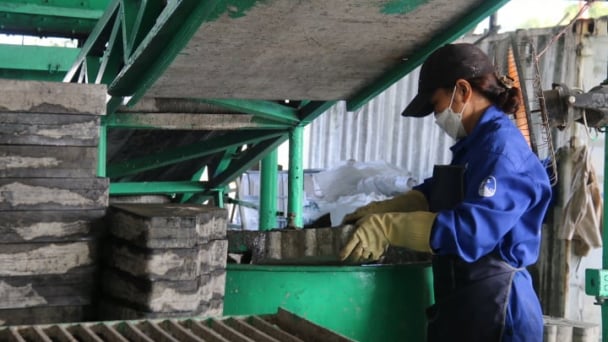
(VAN) Green materials help save energy and resources. However, after more than 10 years, Vietnam has only developed over 200 green buildings with more than 6 million square meters of floor space.

(VAN) Vietnam - Thailand Business Forum 2025: One plus one on three connects, marking a milestone in the comprehensive strategic partnership between the two nations.
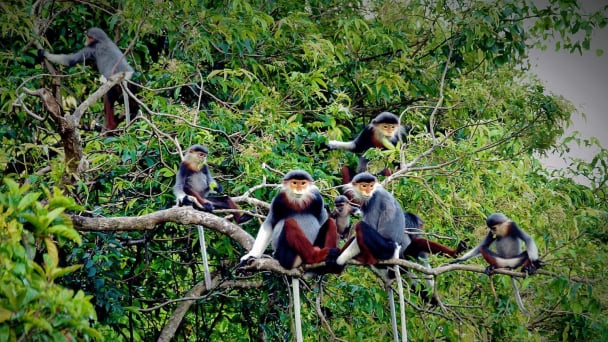
(VAN) The United Nations designated 22 May as the International Day for Biodiversity 2025 with the theme 'Harmony with nature and sustainable development.'
![Multi-channel, multi-directional Vietnamese agricultural markets: [8] A national strategy is needed](https://t.ex-cdn.com/nongnghiepmoitruong.vn/608w/files/phucpm/2025/05/15/1435-thi-truong-nong-san-viet-da-kenh-da-huongbai-8-can-mot-chien-luoc-quoc-gia-084750_728.jpg)
(VAN) The Chairman of Hung Nhon Group shared: ‘Opening up and tapping into new markets is the right and strategic direction for Vietnam's agricultural sector.’
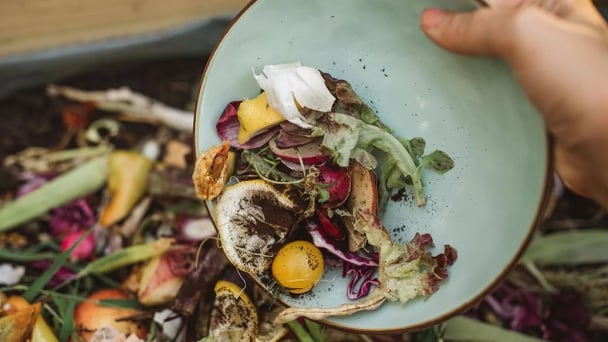
(VAN) Food waste has become a serious issue in modern society, especially in rapidly urbanizing and developing cities like Hanoi.